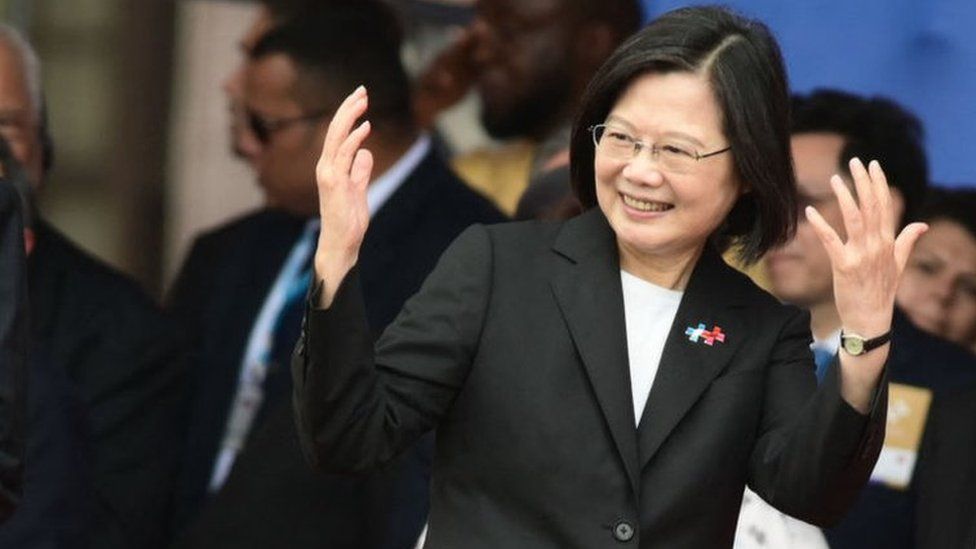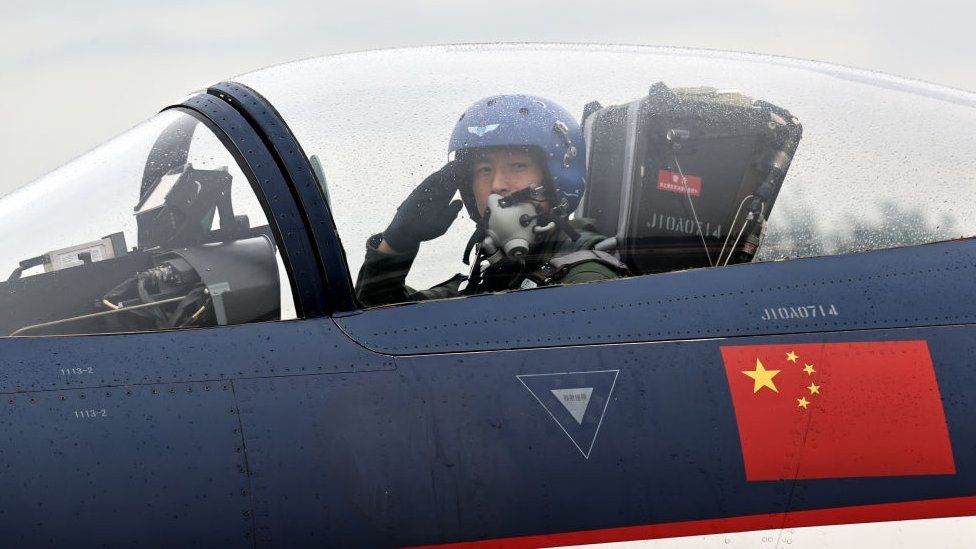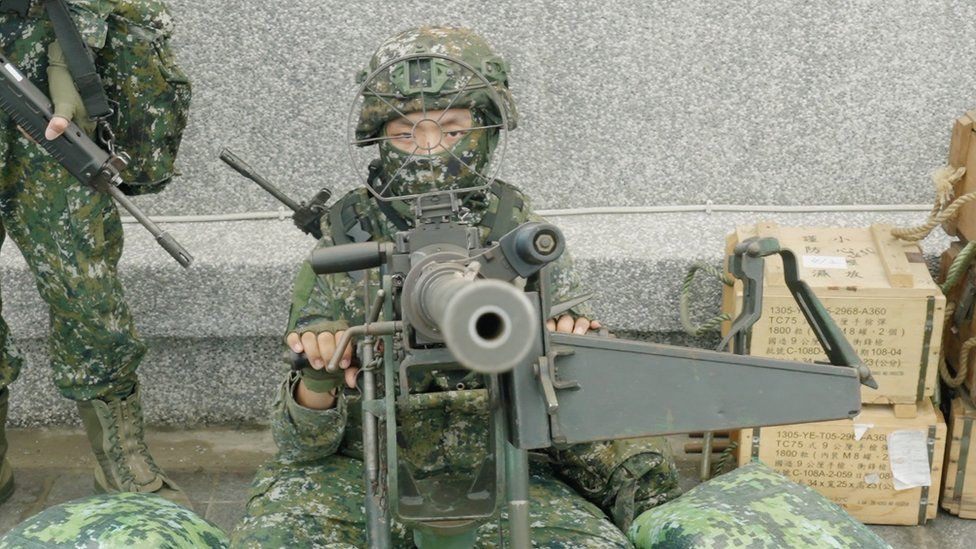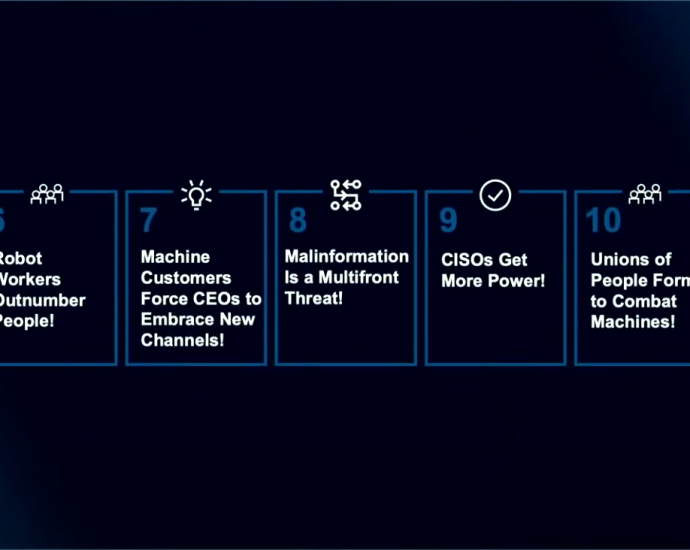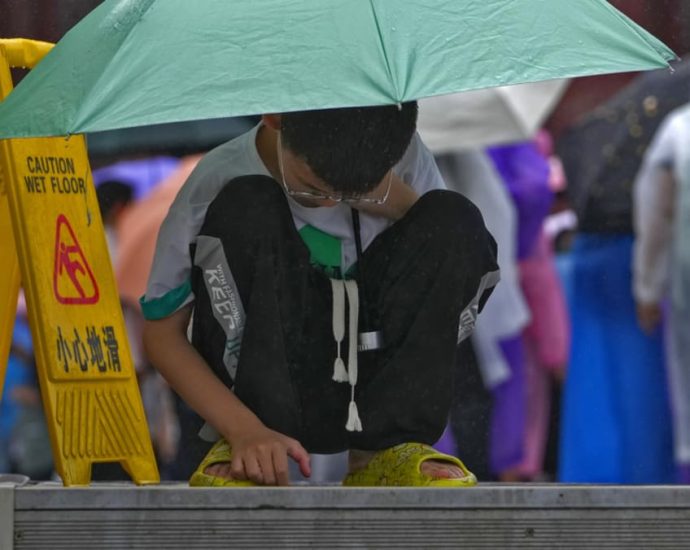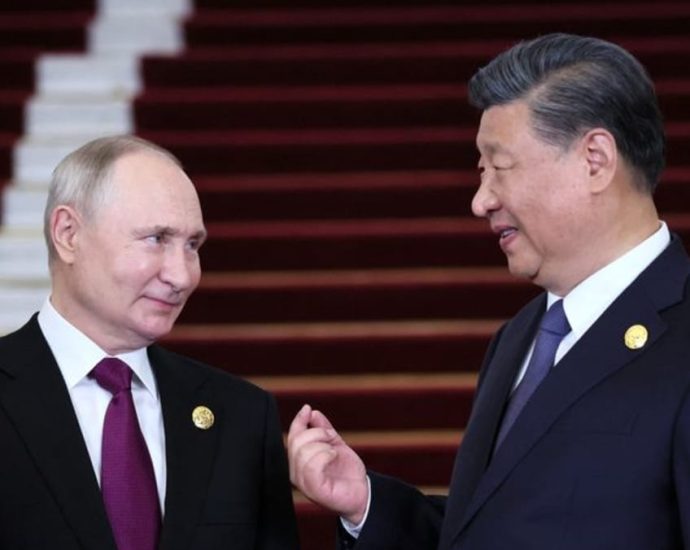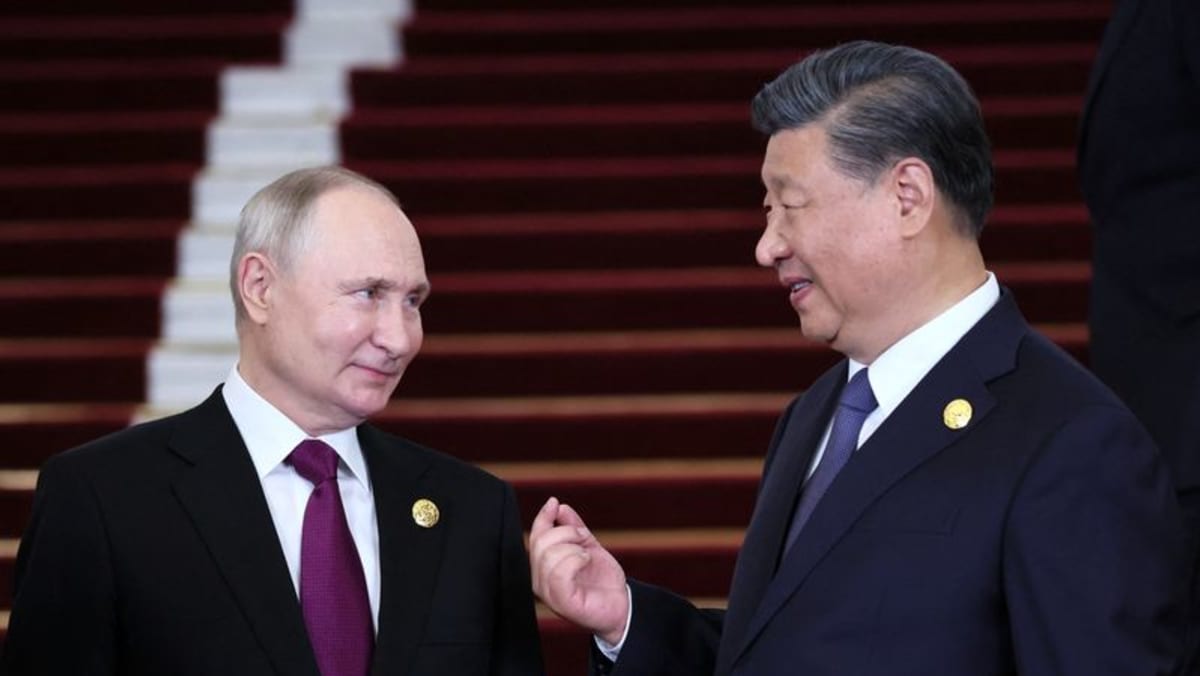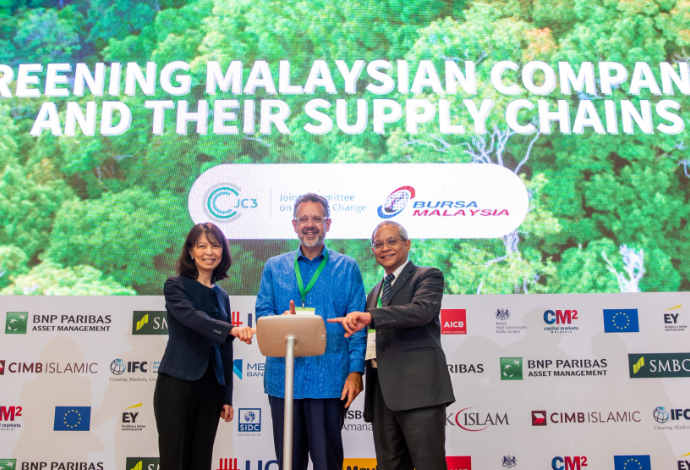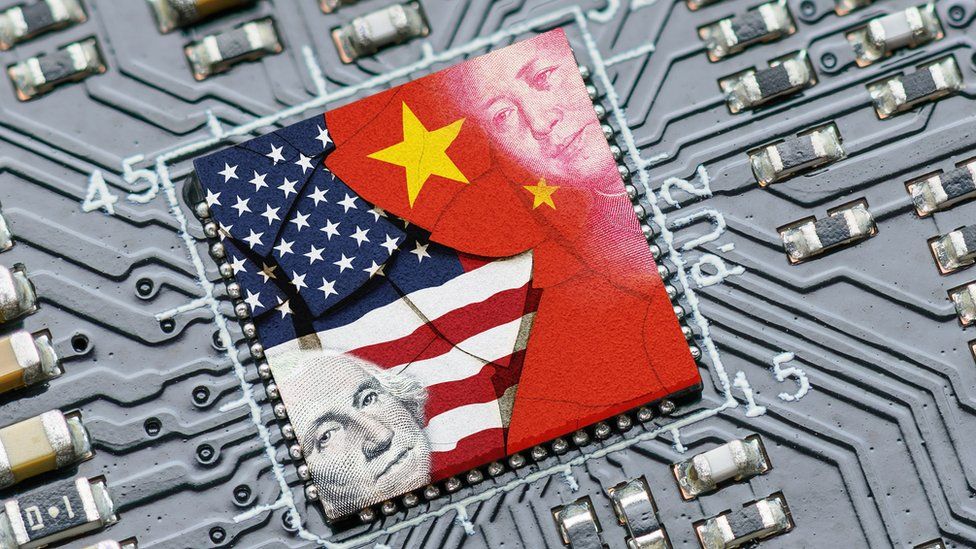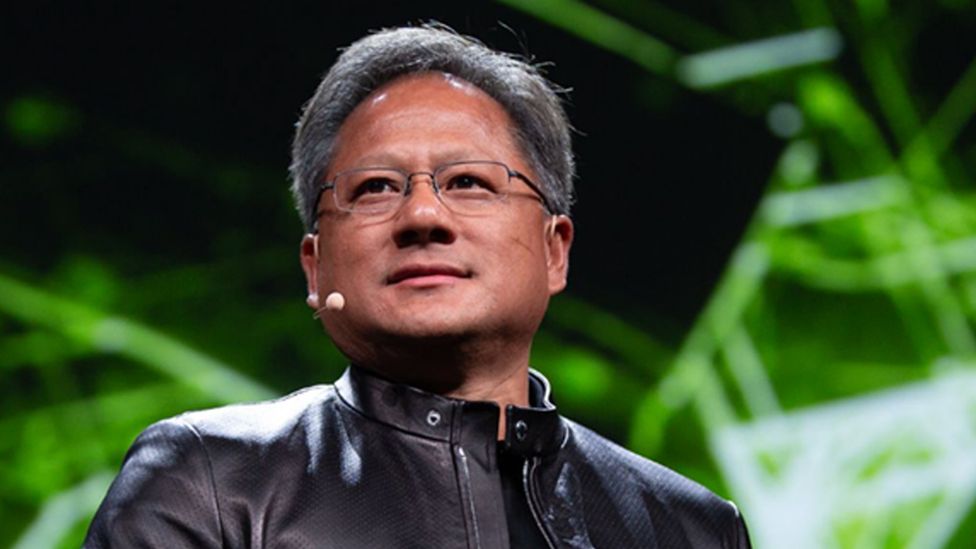Taiwan ex-colonel gets 20 years for spying for China
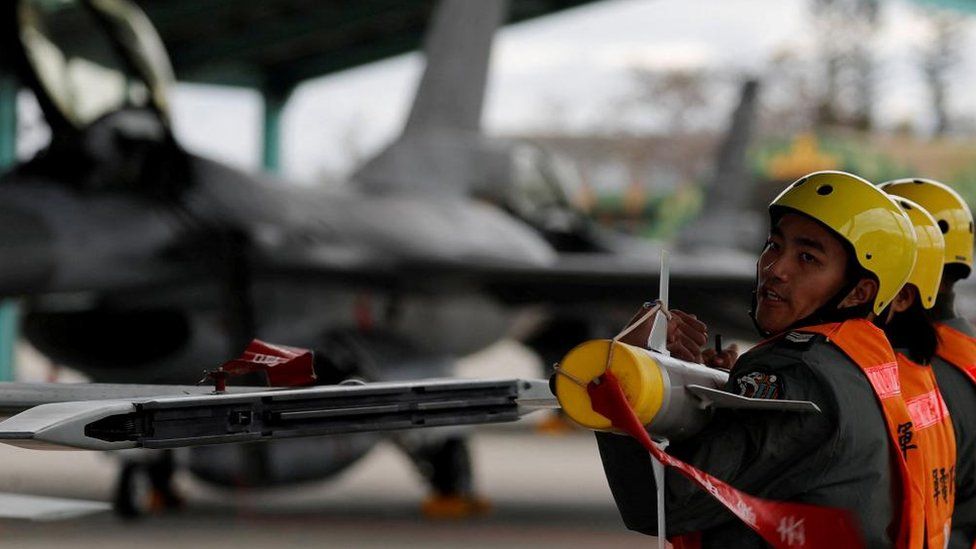 Reuters
ReutersA retired Taiwan air force colonel has been jailed 20 years for running a military spy ring for China.
Liu Sheng-shu was convicted of recruiting other active-duty officers to transmit military secrets to Beijing.
Five other officers – from the navy and air force – were jailed from six months to 20 years for their involvement.
Local media reports say Liu was recruited during a 2013 business trip to China.
He reportedly ran a network of informants, paying them through shell companies.
Prosecutors said that he was paid for passing on military intelligence, such as details on the functions of airplanes and warships.
Apart from his jail sentence, authorities confiscated NT$16.7m (£425,000; $514,000) which they said were illicit earnings.
Liu and six other officers were charged in January by the Taiwan High Prosecutors Office’s Kaohsiung branch. One was acquitted.
A number of former high-ranking Taiwan military officials have been accused of aiding Chinese intelligence in recent years.
In January, a retired air force major general was found guilty of accepting meals and trips from a Hong Kong businessman who was acting on behalf of Beijing.
However, his sentence was suspended since he showed remorse and had no previous criminal record.


